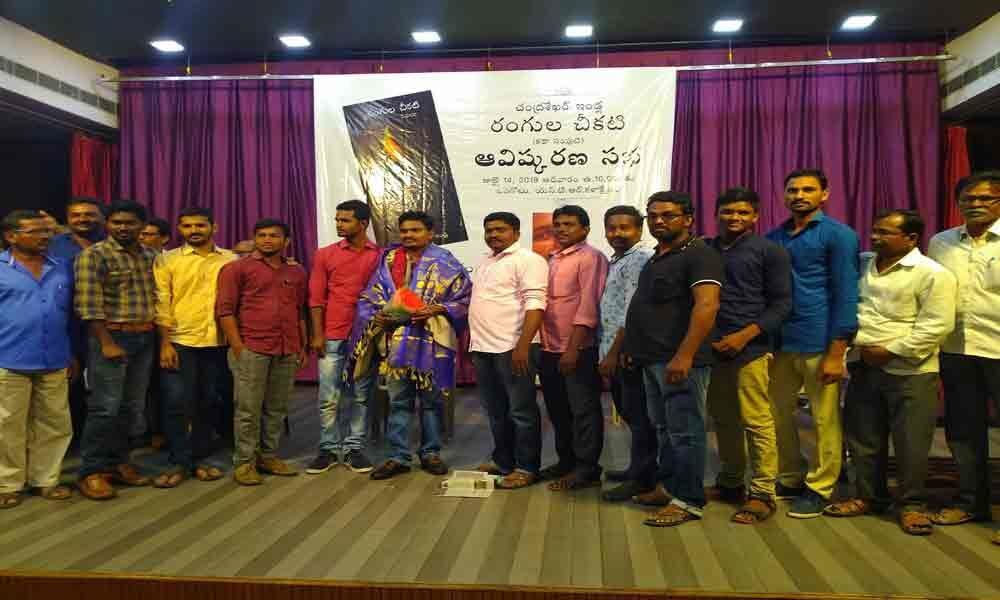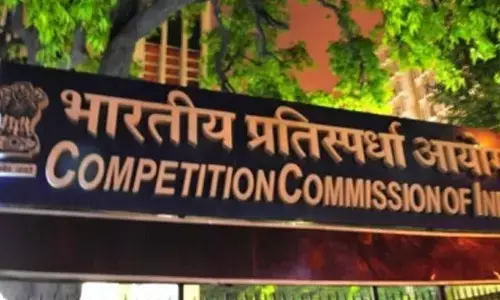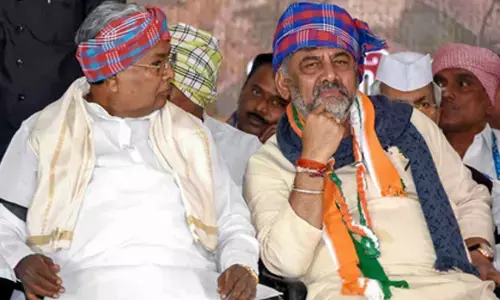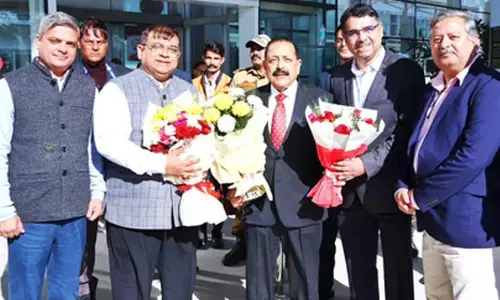Rangula Cheekati book released
 Rangula Cheekati book released
Rangula Cheekati book releasedThe talent to write and perform is a gift to me from the elders in my family for the last few generations, said author Chandrasekhar Indla. ‘Rangula Cheekati’ (Colorful Darkness)
Ongole: The talent to write and perform is a gift to me from the elders in my family for the last few generations, said author Chandrasekhar Indla. 'Rangula Cheekati' (Colorful Darkness), a book of stories written by Chandrasekhar Indla was inaugurated at NTR Kalakshetram in Ongole amid large gathering of writers, literary persons and well-wishers of the writer on Sunday morning.
One of the great play writers living now, writer and director of the much-acclaimed 'Padamati Gali', Patibandla Anandarao inaugurated the book and presented the first copy to the sister of Chandrasekhar.
Anandarao introduced the writer to the audience and explained how his family members including grandfather, uncles and others inspired the communities forced to live in separate colonies for ages, through the medium of theatre.
He told the audience about the tale of Chandrasekhar, who is born into a poor family of Indla Amkaiah in Kanduluru village near Ongole made his career into the prestigious Agakhan Academy in Hyderabad as a faculty in theatre and now going to Broadway in London to speak and discuss theatre.
Reviewing the book, another literary legend from the Prakasam district, Katragadda Dayanand observed that though the district is backward financially and socially, it is way forward in generating literature.
He said that from the times of Errana, one of the Kavitrayam, to Mahaswapna to present Chandrasekhar Indla, the district proved its worth and the writers put the culture and public at esteemed positions. He said that in all these ages, the story form has evolved and reached to them, to whom it is required and localised as per the need.
He said that movements will not fade out, but will be idle for some time or more and will make a strong comeback. Speaking about the style of Chandrasekhar, Dayanand said that no writer learns specifically about the syntax or structure of a story, but makes their own style statement through their work. He said that Chandrasekhar became dearer to the villagers by his language with roots in the villages.
He said that he wrote about the people around him, his family members, others in the village and the developments around them. He said that the Pachhaku Season explains the culture around the tobacco cultivation; Borachekka explains the impact of attacks on their food and culture.
He said that though the writer is a master in theatre arts, he didn't bring drama into the stories and used them to resemble the atmosphere around him in an amicable and positive way. After all praises by writers and poets from the Prakasam district like Nalluri Venkateswarlu, Nune Ankammarao, Dr Nagabhairava Adinarayana, Manchikanti, Srirama Kavacham Sagar, Dr Santhi Kumar, Indla Yesupadam, Molakalapalli Koteswara Rao, Srinivas Goud, Ezra Sastry, Ponnuri Venkateswarlu and others, Chandrasekhar said that he didn't think that he would publish a compilation of his stories.
He thanked his native place Kanduluru and the denizens of it for being the characters in his stories. He said that he wontedly wrote stories, to win a prize in competitions like that in Swathi weekly magazine, just to help his father who was working hard to feed the family.
He remembered how his father felt happy when his first story was published in the Sunday magazine a newspaper and the satisfaction it gave to him as the son of that man of the soil. He also thanked his elders in the family for gifting him a bloodline flowing with the literature and promised his supporters to continue the support they have provided to the next generations.














